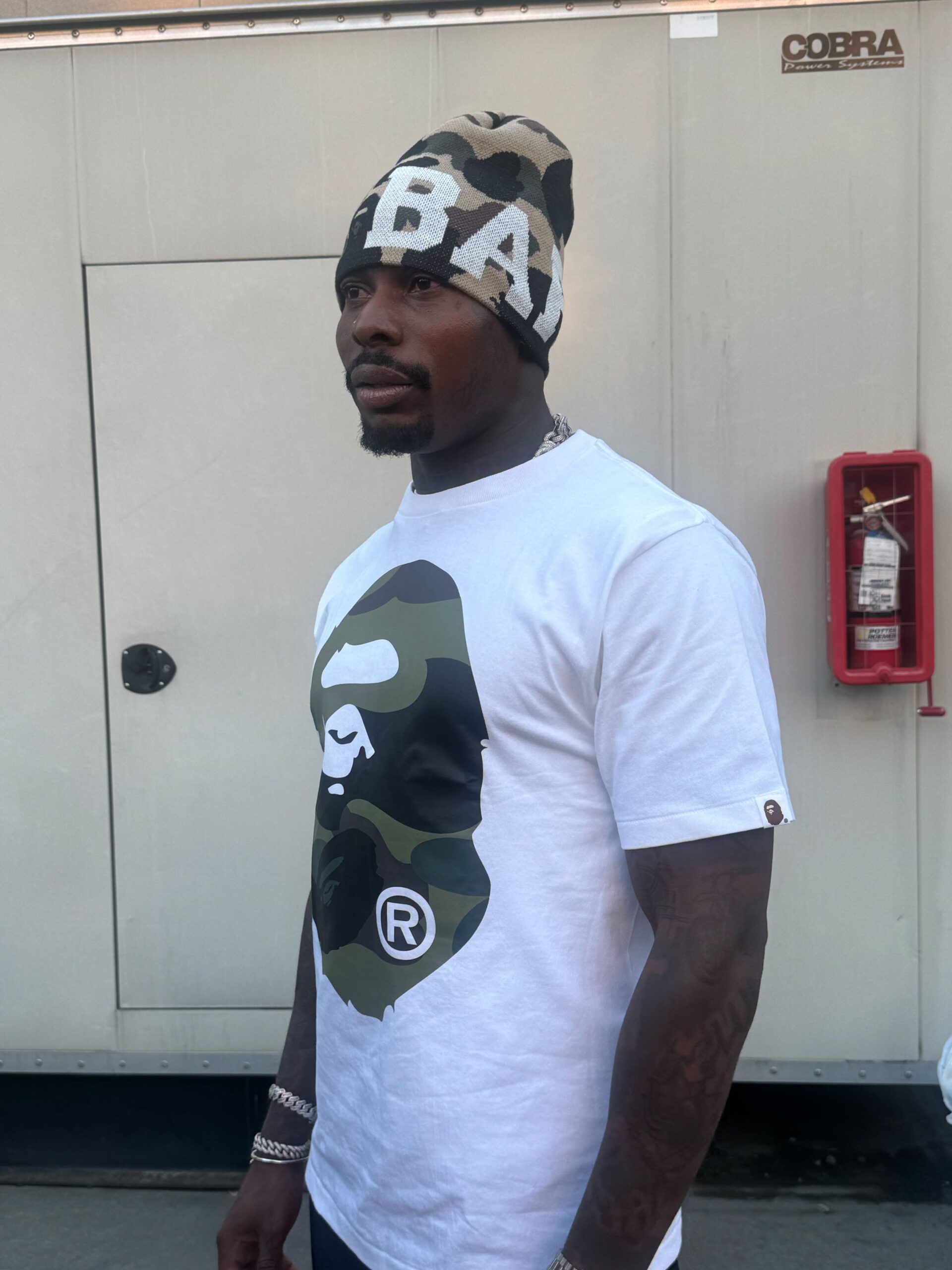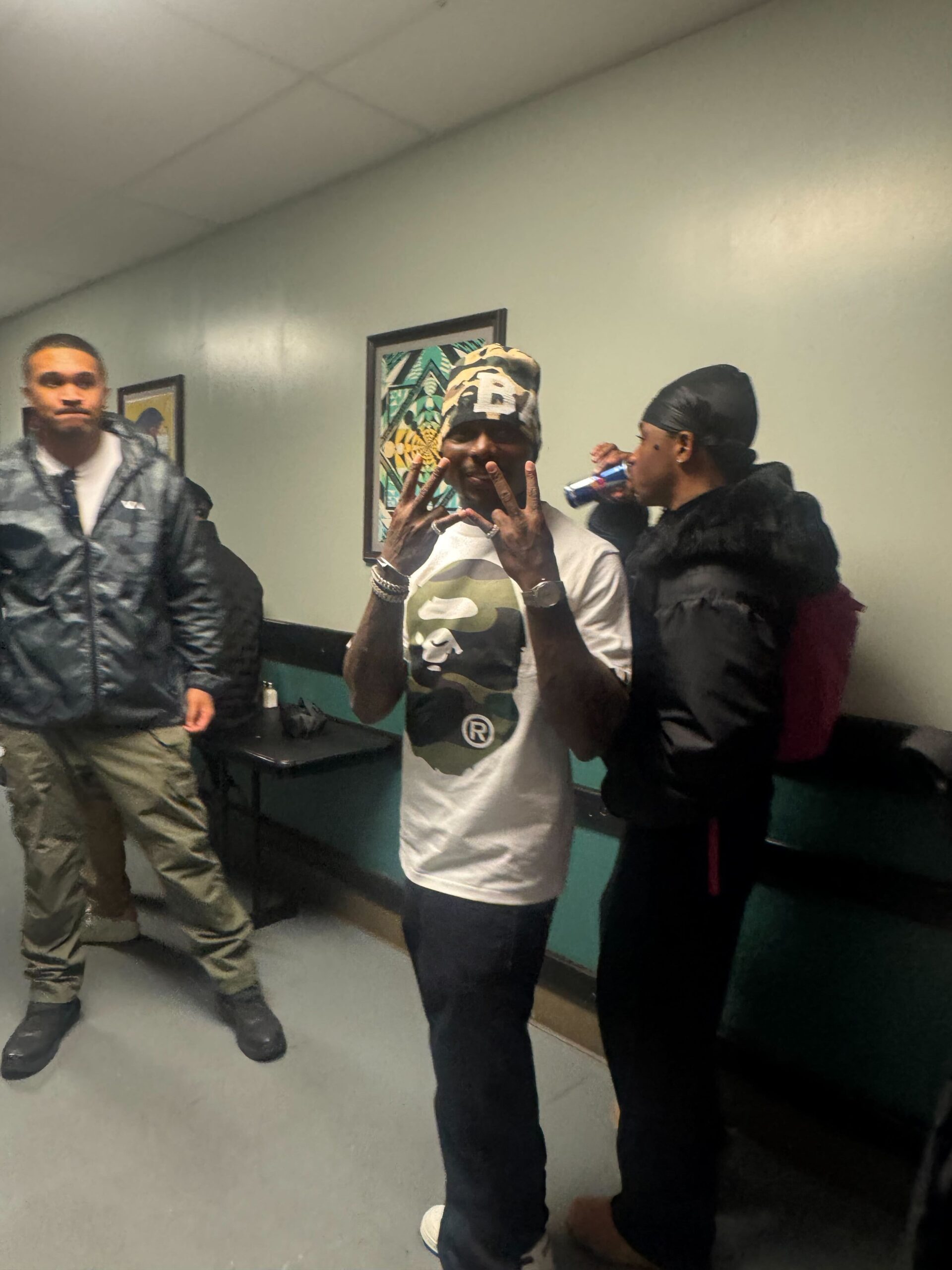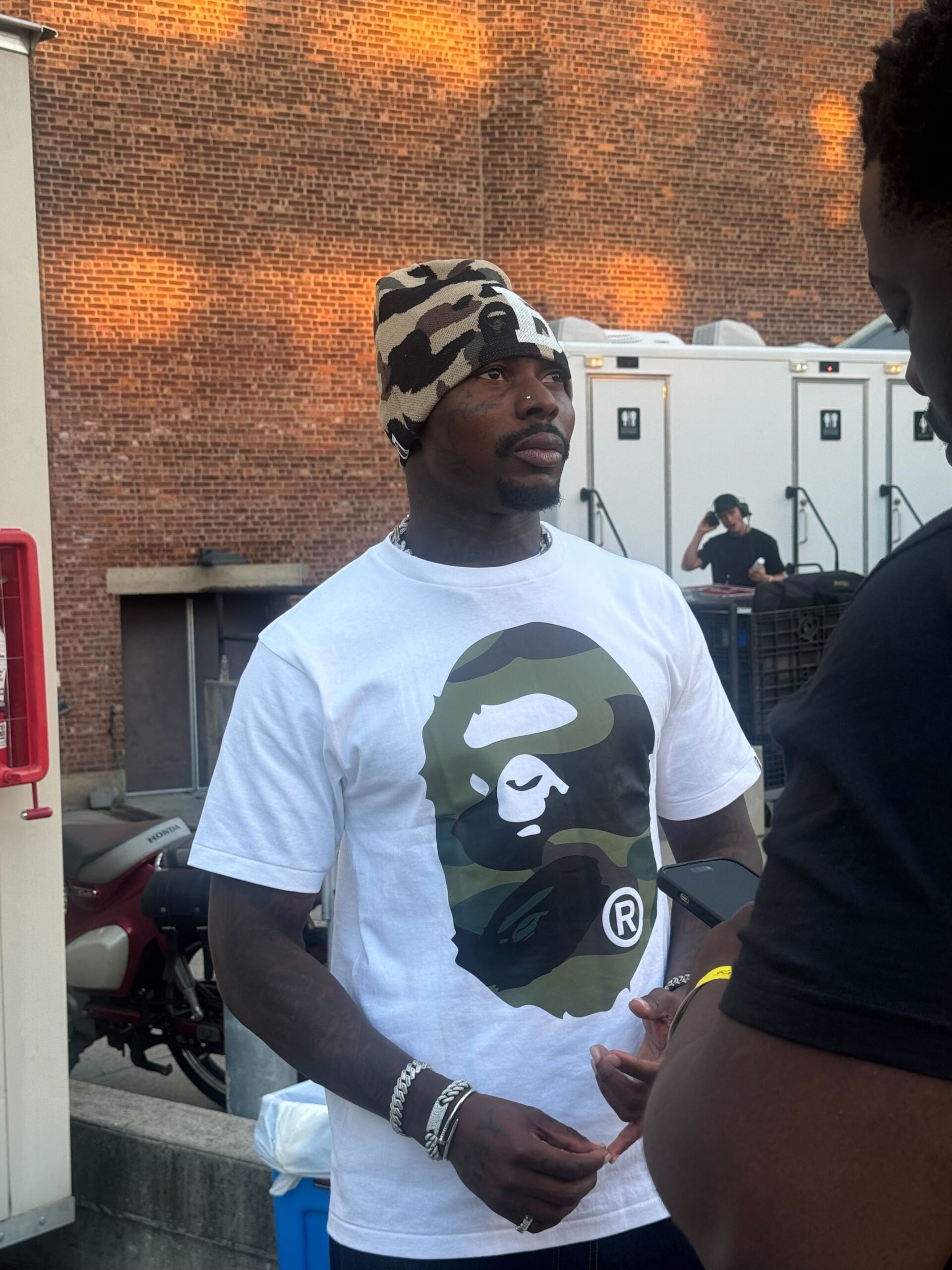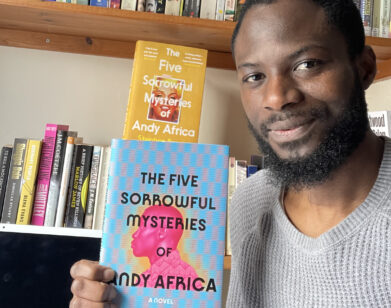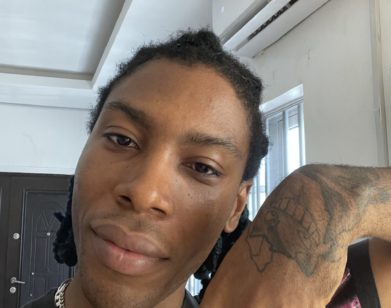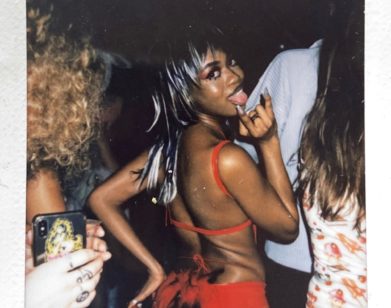BACKSTAGE
Asake Just Wants to Get Closer to God
When two-time Grammy nominee Asake logged onto Zoom from L.A. last week, he was fresh off a late-night studio session, mid-bed rot, and feeling unusually pensive. “Even people that don’t understand my mother language can still feel the feeling,” said the Lagos-born Afrobeats star, self-styled as “Mr. Money,” of his primarily Yoruba-sung discography. Later in the week, he proved this sentiment, swapping sheets for strings at Red Bull Symphonic with Asake, the first-ever Afrobeats symphonic concert in New York City (and surely the first to request black-tie attire, too). Backed by the New York Symphony Orchestra under conductor Glenn Alexander II, he reimagined some of hits—“Amapiano,” “Lonely at the Top,” and “Basquiat,” to name a few—with orchestral flourishes. If the A-list guest stars (Wizkid, Central Cee, and Gunna included) were any indication, everyone was certainly feeling the feeling as the 30-year-old superstar collapsed the sounds of Lagos, London, and Brooklyn into one. Below, he joined us to talk faith, Detty December, and why white rice and stew is the pinnacle of Nigerian cuisine.
———
OLAMIDE OYENUSI: How are you feeling today?
ASAKE: I’m good. I’m blessed.
OYENUSI: Where are you right now?
ASAKE: I’m in L.A.
OYENUSI: What have you been up to so far?
ASAKE: Not every day is the same. Today is kind of slow because I had a long session yesterday night, so I’ve just been in my bed.
OYENUSI: That’s fair. Are you looking forward to the show on Saturday?
ASAKE: Most definitely.
OYENUSI: What do you think drew you to partner with the New York Symphony Orchestra for this performance?
ASAKE: It’s not all my idea. It comes from my team and I really buy it because it’s something I’ve been looking forward to, too. So it came at the right time when I’m ready to actually face things like that.
OYENUSI: Was there a specific song that you were most excited to reinterpret with an orchestra?
ASAKE: I like all my songs because they all define the stage I am in. All my songs have a meaning to me. It’s not like I just go in the studio and get inspired and I start singing. There’s something that pushed me to actually record every track I’ve ever dropped in my life. Every song has the impact of what they want to do on the day of the show, you feel me? So I look forward to performing all the songs.
OYENUSI: Your music reflects Yoruba and Nigerian influences. How does it feel to fuse those traditions with a Western orchestral sound?
ASAKE: Yeah, to be honest, I’ll give myself credit for, with all the distraction in the old world and “Oh, you need to sing in English”—I’m still grounded and I still appreciate my mother language and I’m using it to my best advantage. I’m so happy that even people that don’t understand my mother language can still feel the feeling and still vibe with it. I feel blessed to be one of those people god used to actually promote and let people see the beauty of my mother language. I’ll always be grateful for that for the rest of my life.
OYENUSI: I guess you can tell from my name, but I am also Nigerian. What’s one thing you wish audiences appreciated more about our culture?
ASAKE: That we are good people. We are very good people. We stay on positive energy every time. I’m not saying other countries are not like that too, but I can only tell from what I’ve seen from childhood. The people I’ve been around all my life, we don’t give up. If we set our mind to something, we achieve it. There’s one thing we always say back then in Nigeria to actually keep going, “There’s no country in this world where Nigerians won’t find their way.”

OYENUSI: I’ve seen that.
ASAKE: That’s another blessing in disguise.
OYENUSI: I’ve seen people be like, “Oh, if there are no Nigerians in a country, the place isn’t fit to live.” And that’s so true because there are Nigerians everywhere. So did any classical music influence your childhood? Did you like any composers or classical pieces?
ASAKE: Yeah, I did while growing up because my dad used to be a singer. I actually picked the music from my dad because he listened to music every day. There’s this thing they do back home during Ramadan where they all come together and sit down and listen to the young ones who are coming up to sing. So then I always listened to the songs he played, like [Ayinde] Barrister. I picked Fela [Kútì] by myself, not like my dad used to play Fela for me. But he likes the cultural ones, I think that’s what he can relate to. But while growing up with the influence of friends and me trying to find my own roots and trying to build my stuff, I discovered Fela by myself. Then I added it to the ones I was listening to with my dad. Then I found that I can actually be greater than all these people too.
OYENUSI: My grandpa spent his career doing music in Nigeria, and it’s something that you take for granted when you’re younger, the influence that people around you can have on that and your culture. After three albums and a Grammy nod, how has your sense of experimentation evolved? What do you find exciting or even a bit scary creatively these days?
ASAKE: There’s nothing scary. I used to be so scared, that was two to three years ago because I was new to the whole thing. I’m still new to it regardless, but in this short time I’ve experienced what people have experienced in 12 or 15 years. So I’m just taking it slow and I’m happy with where I am.
OYENUSI: Do you have any pre-show rituals? What does your routine look like before you go on stage?
ASAKE: It’s just prayer. That’s all.
OYENUSI: That’s the Nigerian answer.
ASAKE: This is not even Nigerians. Anyone that really builds their stuff together by themselves knows the value of god and connection to the divine.
OYENUSI: The event encourages a black-tie dress code.
ASAKE: Yeah.
OYENUSI: Can you tell me about the look that you’re planning?
ASAKE: I think you should come see it.
OYENUSI: Oh no, I will be there. Thinking back to your Tiny Desk concert, I watched it. It was great. How does that intimate setting compare to the scale of King’s Theater?
ASAKE: I like intimate shows, I won’t lie. If they ask me now, “Pick intimate shows for the rest of your life or pick big arenas for the rest of your life,” I might probably pick intimate shows because I can see how people feel more. I’m so close to them, I can see how people vibe to my music. So Tiny Desk is what I looked up to for so long, too. I always tell my team that I would like to perform on Tiny Desk. So I’m just so happy everything happened this year and it happens when I’m mentally stable to actually do that by myself. Because sometimes, some opportunity comes and you are not ready for it. You feel me? I’m grateful for that one and I’ll never take it for granted.
OYENUSI: It was so good. I sent the link around at work to make everyone watch it. But after this crossover, are there any other genres or collaborations on your radar that you’re excited about?
ASAKE: We’ll see.
OYENUSI: If you weren’t doing classical orchestra sound, what’s another genre that you think that you would be interested in exploring other than Afrobeats or Amapiano?
ASAKE: Maybe jazz.
OYENUSI: That’s good. What’s your ultimate Nigerian comfort food?
ASAKE: White rice and stew, or white rice and Egusi.
OYENUSI: Good answer. Pounded yam or fufu?
ASAKE: None of them.
OYENUSI: I agree. What’s the most Nigerian thing about you?
ASAKE: The way I talk and the way I carry myself.
OYENUSI: What’s next for you after this show?
ASAKE: Life. We continue from where we stop that one, then we’ll move forward to the next one.
OYENUSI: Do you have any plans for Detty December this year?
ASAKE: Definitely. I’ll be out there to go see my people. I’ve not seen my people in a while. I miss home. I miss the energy. I miss my mother. I miss everything.

